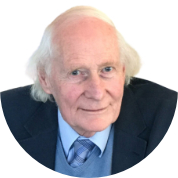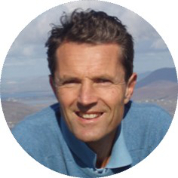Scientific Advisory Board

Professor David Peters MB ChB DRCOG DMSMed FLCOM
Clinical Director, School of Integrated Health
Faculty of Science and Technology
University of Westminster
Professor Peters now directs a new cross-university initiative – the Westminster Centre for Resilience.
He will advise Help2Help on any issues relating to health and wellbeing.
Professor Peters trained as a family doctor, and later in osteopathic medicine and as a musculoskeletal physician. From 1990 until 2005 he directed the highly innovative complementary therapies development programme at Marylebone Health Centre (MHC), a ground-breaking Central London NHS GP unit set up in 1986 to explore new approaches to inner city primary healthcare. Health centres countrywide have employed the collaborative model he developed with Patrick Pietroni’s multidisciplinary team at MHC, and the growth of interest in the use of complementary therapies, notably osteopathy and acupuncture, for NHS musculoskeletal services is in part the legacy of his work.
He was one of the founding faculty of the University of Westminster’s School of Integrated Health which merged with the Department of Bioscience in 2009. He is now Professor of Integrated Healthcare in the University’s Faculty of Science andTechnology where he is Clinical Director.
He has led on a series of research projects implementing or evaluating complementary medicine in mainstream settings, and has co-authored or edited five books about complementary therapies, and the pivotal workbook Integrating Complementary Therapies in Primary Care. Published in 2002, it earned praise even from those with reservations about complementary therapies in mainstream healthcare. In the light of his leadership in complementary therapies service development, Professor Peters has been invited to speak at many high level events, including giving evidence to the House of Commons Health Select Committee.
He was until 2010 Chair of the British Holistic Medical Association – an open association of practitioners working to develop holistic healthcare (bhma.org) – whose Journal of Holistic Healthcare he edits. He was until 2013 a founding director of the recently formed College of Medicine whose aim is to encourage more patient-centred and values-based approaches in healthcare. He now sits on the College Council.
His clinical work as a musculo-skeletal physician has been greatly enriched by osteopathy and acupuncture, and by the somatically-oriented psychotherapeutic methods devised by Peter Levine, as well as his own exploration of working with the relaxation response, yoga and meditation. A particular clinical interest is in dysregulatory syndromes where pain and/or fatigue often overlap, and in the autonomic imbalance and breathing pattern disorders he has seen so frequently associated with them.

Professor Felicia A. Huppert
Emeritus Professor of Psychology, Department of Psychology
Fellow of the British Psychological Society
Fellow of Darwin College, Cambridge
Felicia served as a Consultant on emotional well-being for the US National Institutes of Health’s Toolbox initiative.
Felicia was the lead well-being expert on the UK Government’s Foresight Project on Mental Capital and Wellbeing, the findings of which will be reported by the Government’s Chief Scientific Adviser on October 22, 2008.
Felicia is a member of the ONS Advisory Forum on Measuring National Well-being.
Felicia’s principal research interest is well-being across the life course. Her work is unusual in that it brings together traditional approaches from cognitive psychology and neuropsychology with a population perspective derived from epidemiology. Working with outstanding colleagues in cognate disciplines (biomedical science, genetics, psychometrics, social science, economics and engineering) she has been able to integrate her work on both well-being and positive ageing with an understanding of underlying physiological mechanisms, gene-environment interactions, and the role of the social context.
Felicia is involved in major population studies including the NIA-funded English Longitudinal Study of Ageing (ELSA). She was PI on a project to investigate the life-course antecedents of mid-life flourishing, which involves analyzing data from of the longest-running British birth cohort study – a representative sample of those born in 1946 (http://www.nshd.mrc.ac.uk/).
Practical applications of the research include:
Work with colleagues in the Engineering Design Centre and the Royal College of Art to develop guidelines for designers about good design of products and environments that enhance both functioning and well-being.
A study undertaken in collaboration with members of the Oncology and Psychiatry Departments involving well-being interventions for cancer patients in Addenbrooke’s Hospital. A CD based on mindfulness meditation and visualization has been developed for this project, together with a specially designed diary to record positive experiences.
A trial undertaken with teachers in independent schools, on the effects of mindfulness meditation in teenagers. Weekly lessons were given in class and an MP3 file was provided for daily practice.
Felicia headed the consortium that has developed national indicators of well-being for Europe. This forms part of the European Social Survey (Round 3) which took place in 30 countries in 2006/2007. By evaluating subjective aspects of well-being the survey will supplement existing economic measures and provide an alternative way of assessing the effectiveness of government and social policy.

Professor Sarah Stewart-Brown
Emeritus Professor of Public Health, University of Warwick
Sarah Stewart-Brown is Emeritus Professor of Public Health at the University of Warwick . She studied medicine at the University of Oxford and worked in the National Health Service from 1974 to 1994 first as a paediatrician and subsequently as a Public Health doctor. She held academic appointments at the Departments of Child Health, and of Epidemiology and Community Health, at the University of Bristol. She was a Reader in the Department of Public Health at the University of Oxford where she directed the Health Services Research Unit. She moved to Warwick University in April 2003 as Professor of Public Health, and was Director of Warwick Medical School’s Health Science Research Institute from April 2006 until 2010.
For the last 25 years Sarah’s research and practice has focused on public mental health, working with the UK Faculty of Public Health to develop the discipline and UK Governments to develop public mental health policy, researching interventions and measuring mental wellbeing. She developed the Warwick Edinburgh Mental Wellbeing Scale supported by a team including Professor Stephen Platt, from the University of Edinburgh and Professors Stephen Joseph and Scott Weich and Dr Ruth Tennant from Warwick University. Sarah’s interest in wellbeing has led her to explore non-traditional interventions including bodywork which she trained to teach and practice.
Now in the final stages of a successful career, as Emeritus Professor Sarah continues to support public mental health research and practice, and enables others to explore wellbeing in the context of their work, home, health and relationships. She offers coaching and bodywork on a one to one basis, and wellbeing courses and lectures (https://wellbeing-ventures.co.uk/)

Arnon Rolnick, Ph.D.
Clinical Psychologist, expert in psycho-physiology, biofeedback and computerised psychological interventions
Dr Arnon Rolnick is a clinical psychologist and past president of the Israeli Association for Applied Psychophysiology and Biofeedback and member of the Board of the Israeli Psychological Association. His expertise in stress management is based on almost 20 years of working with elite military units as a senior psychologist in the Israeli Navy and head of the Biofeedback and Human Performance Laboratory. In his academic work, he has a Ph.D. in experimental psychology from the Tel-Aviv University where he has been a lecturer. He published articles and book chapters on coping with stress for which he received the Rothschild and Lewis fellowships. Arnon is known as an expert of Clinical Psychophysiology and psychosomatic medicine and he is managing these forum on the Internet. He is a member of the BCIA International Certification committee.
Dr. Rolnick participated and advice Ultramind, Ultrasis and Health-Smart in the development of interactive computerised psychological interventions, and interactive behaviour modification. He will advice The HELP trust in all the relevant psychological issues and application related to habits changes and character development.

Dr Peter Fenwick
Emeritus Senior Lecturer, Institute of Psychiatry
Dr Peter Fenwick, MD, was Senior Lecturer at the Institute of Psychiatry, Kings College, London, and was associated with the Mental Health Group at the University of Southampton. He was also Consultant Neuropsychiatrist at the Maudsley Hospital and at the John Radcliffe Hospital in Oxford, and held a visiting professorship in Japan, where he spent three months of the year in advanced neuropsychiatric research. He was Chairman of the Study Society, is Emeritus President of the Scientific and Medical Network, and is Chairman of the Research Committee for the Foundation for Integrated Medicine.
He has had a long-standing interest not only in brain function, but also in consciousness research. He has an extensive research record and has published over 200 papers in medical and scientific journals, and has written several books.

Dr Oliver Robinson
Associate Professor of Psychology, Dept of Psychology, Social Work and Counselling, University of Greenwich
Dr Robinson – Olly, has been at the University of Greenwich since 2006 and is Programme Leader for the BSc Hons Psychology with Counselling degree. His specialist area is adult development and has recently published a textbook on the topic.
His particular research interests are in how personality and mental health are affected by major life transitions during adulthood. He runs a third year undergraduate option entitled Adult Development and Mental Health, co-ordinates the Introduction to Psychology course for first year undergraduates, as well as contributing to methods teaching at undergraduate and postgraduate level.
Olly won the following awards: Early Career Researcher Communicator of the Year award for his extensive interaction with media regarding his research (2012); Early Career Research Award (2010); Teaching innovation award for ‘Controversies in Mental Health and Mental Testing (2009).
Olly employs a diverse range of research methodologies, including quantitative, qualitative, case study and mixed-methods approaches. His research has gained interest from the media, including the New Scientist, The Guardian, BBC Radio 4, The Telegraph and the Times.
Olly is interested in helping students to overcome crisis, develop their character, wellbeing, and discover their qualities, values and life purpose.

David Lorimer, MA, PGCE, FRSA
Chief Executive of Character Education Scotland and creator of the Inspire>Aspire Values Poster Programme
David Lorimer, is a writer, lecturer, editor and educationalist. Originally a merchant banker then a teacher of philosophy and modern languages at Winchester College, he is the author and editor of over a dozen books, including Whole in One – The Near-Death Experience and the Ethic of Interconnectedness, Thinking beyond the Brain and Science, Consciousness and Ultimate Reality. His book on the ideas and work of the Prince of Wales – Radical Prince – was published in 2003 and the abridged paperback came out in 2004. The book has been translated into Dutch, Spanish and French.
David is Programme Director of the Scientific and Medical Network and has edited Network Review since 1986.
He is the originator of the the Inspire>Aspire Poster program which has reached over 200,000 young people.
In addition, David is Executive Vice-President of Wrekin Trust, a charity concerned with adult spiritual education. He is past President of the Swedenborg Society and and Vice President of the Horizon Research Foundation (The International Association for Near-Death Studies UK). He has a long-standing interest in the perennial wisdom and has translated and edited books about the Bulgarian sage Peter Deunov. David is also a member of the International Futures Forum and has been editor of its digest, Omnipedia – Thinking for Tomorrow.
